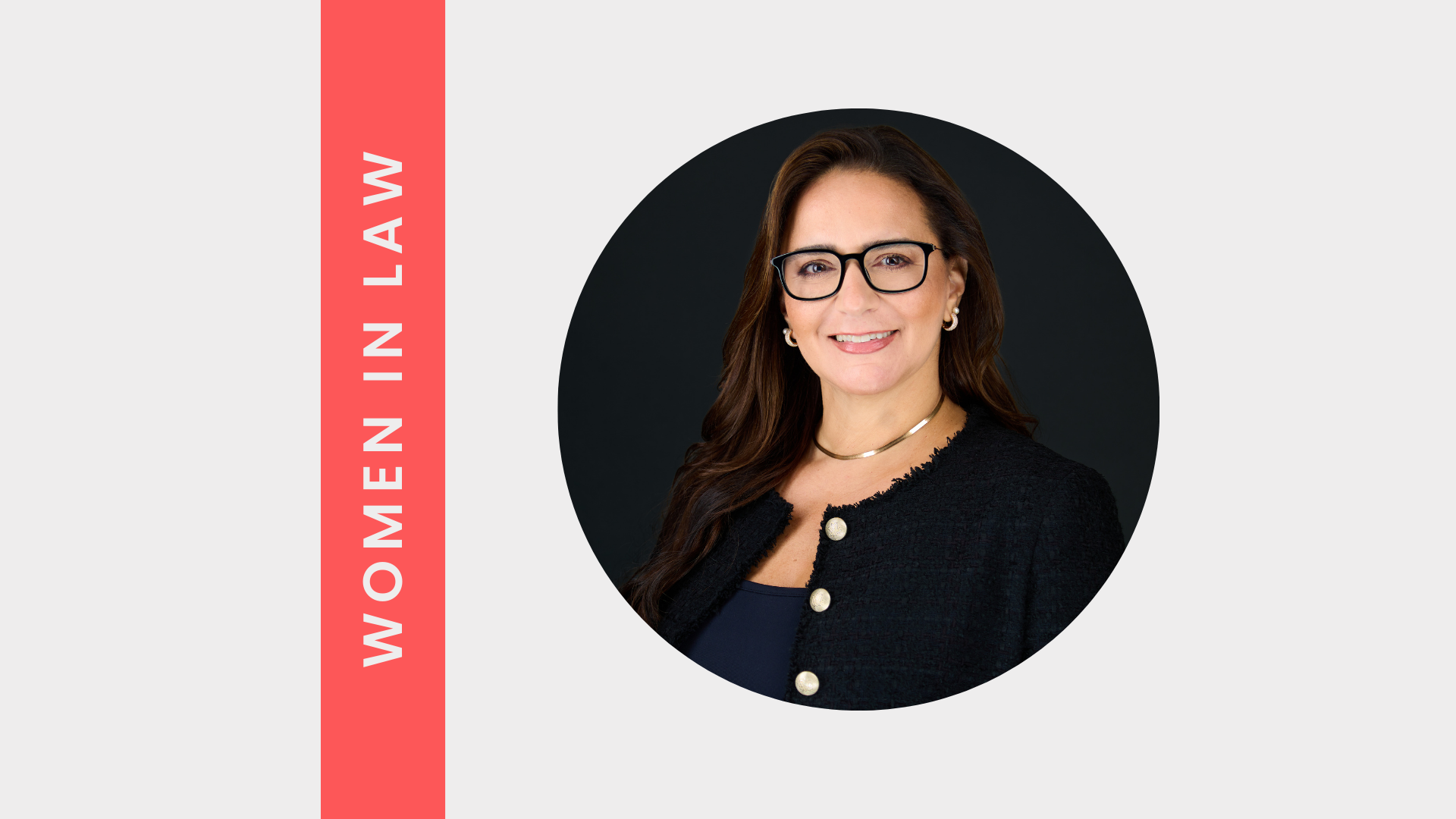Inspiring Business Women: Jasmin Allott
Jasmin is a Board Level Technology Leader with multi-sector experience across Financial Services (Payments, Banking, Insurance, and Asset Management), Media & Digital Marketing, and more recently Online Retail. She has built and led significant global and regional transformations, supporting strategic business objectives for AO World, Dentsu International, Schroders, QBE, Nationwide Building Society, and Visa Europe.
Tell us about your career progression into your current role.
After school I wasn’t really sure what I wanted to do so I joined the armed forces and spent a few years gaining different life skills. An injury ended that phase of my career and I then fell into IT. My first role was with IBM as a Computer Operator which I spent a few years doing. I then got offered a role with Anderson Consulting, now Accenture, as a Unix Operator which was a slight step up with more responsibility. After some other operation and administration roles, I worked for a few SI's who were doing banking oversight and managed services, where I held several technical positions. I joined Visa in 2005 and spent 10 years there, starting as a hands-on techie, then working my way through the ranks from a manager of teams, right the way up to senior delivery director roles. When I felt I’d gone as far as I could, I moved to Nationwide to transform products for some of their insurance lines, it was local to where I lived and was the work/life balance I needed at the time. After a couple of years, I went to QBE Insurance and then Schroders, which got me experience in different sectors and broadened my horizons and my skill set as I moved more into Tech strategy and leadership. Then I joined a digital media and advertising company called Dentsu and cemented myself as Director of Technology, focused on Tech strategy, and responsible for transformation. Finally, I got the opportunity to come to AO to help transform the organisation. They did wonderfully well through Covid as an online retailer, and we wanted to take that opportunity to build on their success and futureproof the business. Overall my career has been a mixture of working hard and taking advantage of opportunities that have come my way.
What are some of the biggest challenges that you've faced in your role?
I've been fortunate that I don't think I've faced any challenges for being a woman in Technology. I feel like I've had the same opportunities as any male counterpart, which is great, especially as a woman in a senior role. The challenges I tend to face are down to either the transformation or the change of operation we’re doing. It can be very emotive, and feelings based, it's not just about systems and processes. Getting people onside to see the vision and to want to be able to make positive changes often comes down to the more emotive and unsubstantiated elements of transformation, rather than the tangible data.
If you had to pinpoint your success to one thing, what would that be?
I don't necessarily consider myself successful, I just have a different role now with more responsibility. If that is considered a success, then it’s not down to just one thing. I would say showing and proving that you’re capable and reliable is one thing. Taking advantage of situations when they're offered and then delivering is another. You don't always have to know everything but being honest and authentic has served me well. I make decisions, of course, but I have the view that making decisions collaboratively is more effective because they get more buy-in. I tend to see all my development points rather than my successes which tends to keep me quite humble. Any success I have had is down to the teams delivering, to the organisations embracing change and to getting the best out of people, fundamentally knowing when to push and pull as a leader.
What are your thoughts on risk-taking and do you think it's harder for women leaders to take risks or more imperative?
Risk-taking walks hand in hand with transformation. The reason for that is because you never have all the facts and if you waited for them, you'd never transform anything. Using a mixture of experience and data to help decision making. I haven’t found it to be harder for women, but I can imagine if you're in a position where you've struggled to get noticed or are overruled, whether you're male or female, you might feel that more risk is needed to get that highlighted. I was reading an article a few weeks back that talked through how risk-taking is a pervasive feature of male psychology, but less so in women. My view is it’s important to stop and recognise that each of us defines and manages risks differently, based on unlimited influences.
Do you have a role model or mentor in your career and what is the value of them?
I have had many different types of mentors as I’ve increased my responsibility. My role model is not anyone that I've worked with, it's my grandfather. He was very passionate about what he did and very dedicated to his craft, but humble with it. Within work, I tend to have different people for different things. Some are for when I step into areas that are outside of my comfort zone and can help me navigate through the bits that I need help with. Others I have for the more emotional side of things, where I can have conversations around why I'm feeling a certain way or for guidance in terms of the next steps of my career. I think it’s important to keep developing yourself
How have you seen the Technology industry change over the years in terms of diversity and women in the workplace?
The challenge that I've always found with Technology and STEM is, we haven’t typically done a great job at selling it as a career. I accidentally stumbled upon it, and 20 plus years ago it wasn’t really an option for many women. To make it more popular with women or girls, we need to target the grassroots better and explain that there are several vocations within Tech, it’s not just about development and coding. Tech roles don’t have to be 9-5 there are multiple vocations that can bring more options to the diverse workforces we now need. In terms of other diversity, I think Tech is improving and there is a wider range of people coming into the industry than ever before. On the other side of diversity, I am married to a woman, and I feel empowered that I can say that and share that experience these days. There was a period in my life where I didn’t feel able and confident to say that. The world has moved on, and as a leader of people, I feel a responsibility to lead from the front. It can only be for the better in terms of different views and ways of thinking, leading to richer outcomes.
In an international organisation, how do you promote both diversity and inclusion?
I'm fortunate because I can lead from the front and make diversity and inclusion personal and show there is a senior leader there who values that. I am also keen as a leader to support being aware of our unconscious biases and how we bring them into our everyday life, interviews, and meetings etc.
Equal pay is starting to be addressed, however more needs to be done. A lot of organisations are targeting women in leadership positions to bring equilibrium. I’d want to get a job because I am the right person, irrespective of race, colour, or sex, not because I ticked the woman box.
Do you believe that creating a diverse and inclusive environment starts at the top or the grassroots level?
I am a believer that leaders should lead, but that doesn’t mean dictating. Leaders should set a precedent of what good practice looks like and then the top-down and the ground up need to meet. Empowering people, giving people confidence, the tools, the environments, and the space is absolutely the responsibility of leadership. Then there has to be some responsibility for the rest of the layers in the organisation to take advantage of that. It can be difficult sometimes to roll out these types of initiatives because they can get a passive response and that can be frustrating, but I'm passionate about making sure people are aware of what's out there to aid and assist them and if they've got any problems, what the paths are for help.
What advice would you give to women wanting to move into a leadership role or IT?
The advice I would give, whether you're male or female, is firstly to consider whether you truly want a leadership role. What most people don't understand about leadership roles until they're in them is that they take you away from the core capability that you once had, and many people find that difficult. If leadership truly is for you, there are a couple of things that have served me well. Being confident and instilling confidence in others is one. If I don't know the answer to something, I will go away and find out, but I will keep a situation under control in the meantime, which helps everyone else feel confident. Secondly, take advantage of the small situations. They matter to people and people remember. Lastly, stay true to yourself. If I fundamentally change myself, I'm going to lose my identity and my identity is what got me here in the first place. There are opportunities out there for women to climb up the ladder and be successful, and women with families are, post-Covid, more supported than ever, so my advice is to take those opportunities when they present themselves and make them work for you.
Our latest insights







